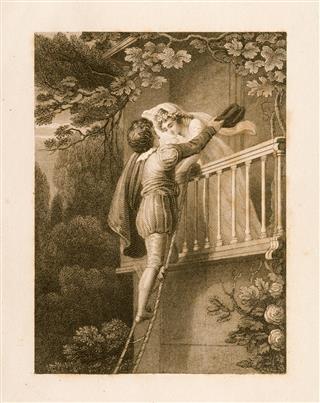
Dramatic irony is a figure of speech that’s mainly used in plays, where the character is unaware of the happenings and circumstances (both present and future), unlike the audience. This article lists out some dramatic irony examples to enhance your understanding.
When two concepts contradict each other, it is said to be an irony. This figure of speech works well when sarcasm is intended. The word irony is taken from the Latin word ironia, which means feigned ignorance. It is further classified into different categories, the distinct ones being verbal, situational, and dramatic.
Dramatic Irony As a Tool
This type of irony occurs when the reader or audience is aware of the plot and what will come next, while the characters themselves are unaware of the true situation. Hence, this works as a device to attract sympathy towards the characters and keeps the audience engaged in the story through anticipation. This anticipation, also called ironic tension, is heightened between the two points of revelation and recognition. Revelation is when the audience is given information that is not known to the characters, whereas recognition is when the characters finally discover this information. Often used to inspire a feeling of fear or suspense, dramatic irony applies misunderstanding to create laughter, in case of comic instances.
Real life instance: Imagine that you are attending a party with a few friends. Your friends know that you don’t drink. Yet, to play a prank on you, they hand you a glass of orange juice spiked with alcohol. Here, it is an example of dramatic irony, when everyone around you knows that you’ll be tasting alcohol. On the other hand, you are absolutely ignorant of this fact till you actually drink it. With this explanation, let us look at some examples.
Instances from Literature
There are a number examples of dramatic irony in many works of literature. This literary device is often associated with emotion and mood, and draws the audience into the plot of the play. It also beautifies and emphasizes the art of speaking in an effective manner.
- In Oedipus Rex (also Oedipus the King), a Greek tragedy by Sophocles, Oedipus desperately tries to fish out the murderer of King of Thebes, not knowing that he himself is the culprit. Unlike the reader, he is unaware of the fact that Laius, whom he has killed, was the King.
- In Harry Potter and The Goblet of Fire, the fourth book in J. K. Rowling’s Harry Potter series, the reader remembers the details of Harry’s visions over the summer, while Harry himself has trouble recollecting them.
- In Arthur Miller’s play, The Crucible, the Puritans, who are responsible for spreading good in the society, are depicted to have enmity and grudges amongst each other.
- An example from the Odyssey is when Telemachus (Odysseous’ son) helps a beggar, not knowing that it is his father in disguise.
- Another example from the Odyssey is when Odysseous’ is in front of his wife in disguise. Even if she doesn’t recognize him, the reader is aware of the fact that Odyseouss is testing her.
Shakespearean Plays
- There are two instances in theTwelfth Night. One instance is where the captain of the ship in which Viola is traveling, disguised as a boy, gets attracted to her without knowing that she is a woman. In the second case, Malvolio is tricked into reading a letter (written by the servants to play a joke on him), which he thinks is written by Lady Olivia. The letter instructs Malvolio to go and meet Olivia, dressed in a manner that she hates. The audience and the servants have fun at the expense of Malvolio’s foolishness.
- In Othello, Othello doubts his wife Desdemona of infidelity, trusting the treacherous Iago.
- In Romeo and Juliet, one of the most romantic and tragic plays, the basic plot itself is fraught with dramatic irony. The reader is aware that both Romeo and Juliet belong to rival families, but the characters are not aware of this fact. In the climax, Romeo mistakes the unconscious Juliet to be dead, and kills himself by consuming poison. Meanwhile, Juliet wakes up, and asks Friar Lawrence of Romeo’s whereabouts. Lawrence feigns unawareness, when actually he has seen Romeo kill himself.
- In the first scene of Macbeth, the three witches assure Macbeth that he is the king, when actually he is not. The audience is aware that king Duncan is being betrayed by Macbeth, yet the king talks about the treachery of the Thane of Cawdor.
Movies
- In horror movies, the audience is kept on tenterhooks, while the characters are not aware of the perils awaiting them.
- In James Cameron’s Titanic, just before the ship hits the iceberg, one of the characters leans on the balcony, looks out at the sea, and says, “It’s so beautiful, I could just die.”
- In case of the application of dramatic irony for a comic effect, a scene from Peter and Bobby Farrelly’s There’s Something About Mary could be the best example. Ted thinks he has been arrested for picking up a hitchhiker, while the audience knows that he is actually being questioned about a murder. Hence, when he claims that it is no big deal, and that he’s used to ‘doing it’, it induces laughter.
Other writers to have extensively set dramatic irony examples are Henry Fielding, Voltaire, Henry James, Jonathan Swift, Anton Chekhov, Thomas Hardy, and O. Henry. They enhanced the beauty of the English language in all its variety and floweriness, with various plots and suitable endings. Now you know what is the essence to make the audience, enjoy guessing the fate of the characters in any literary work or movie.





